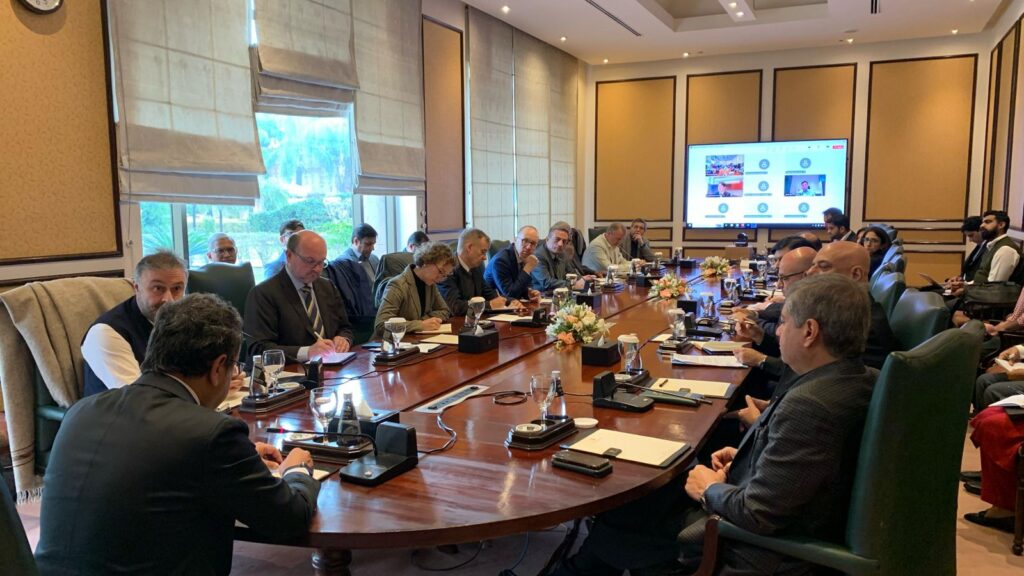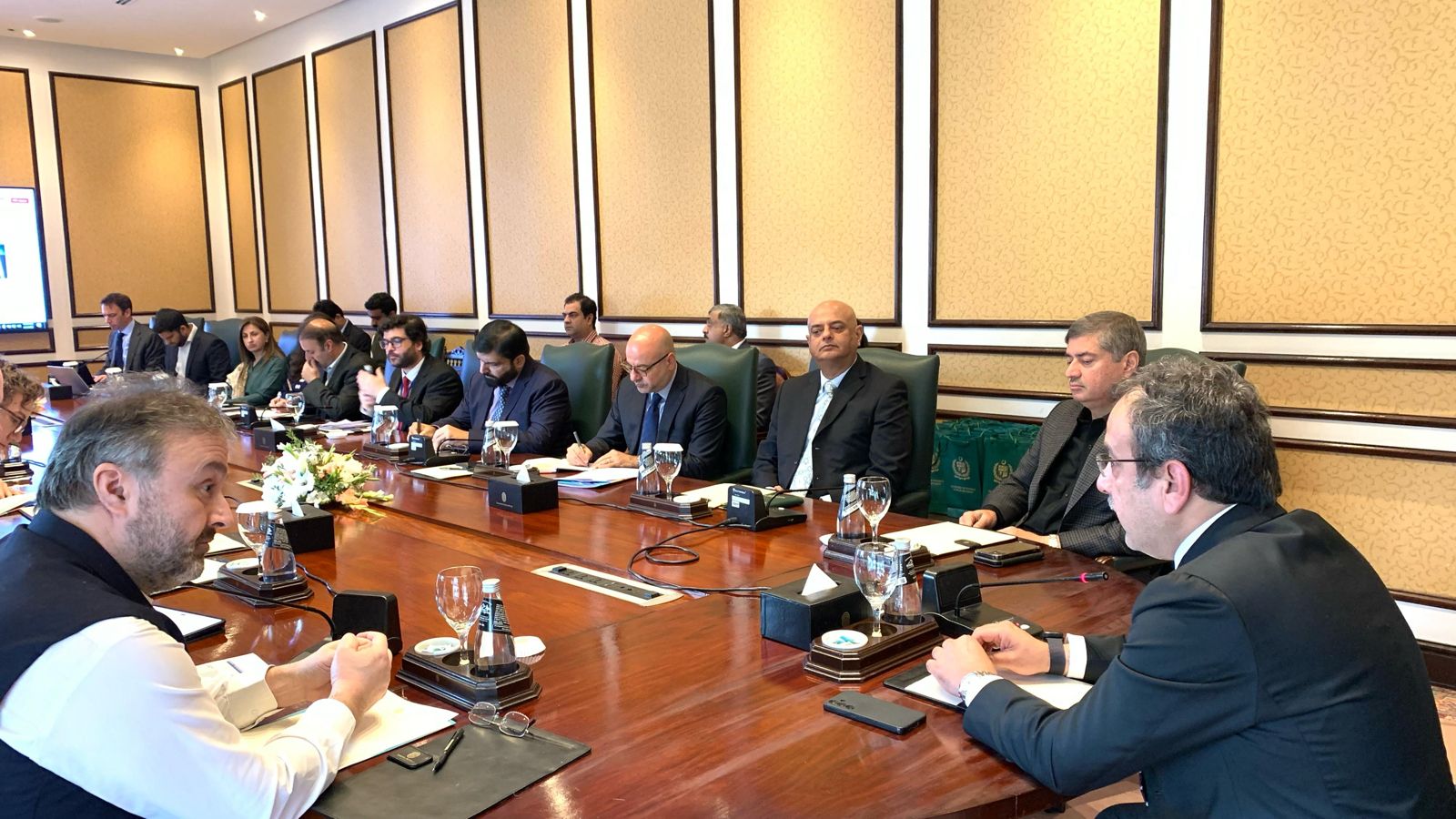Islamabad, Mar 3, 2025: Federal Minister for Energy, Sardar Awais Ahmad Khan Leghari, held an extensive discussion today with global development partners in the energy sector, focusing on reform strategies and future plans.
The session was presided over by the World Bank’s Country Director, Mr. Najy Benhassine, and attended by representatives from the IMF, ADB, IFC, KfW, the German Embassy, FCDO, UNDP, and AIIB.
During the meeting, the Federal Minister outlined the initiatives undertaken by the Power Division to enhance operational efficiency and financial discipline.
He emphasized that these measures aim to make electricity tariffs more affordable, particularly for industries.
Negotiations with IPPs
He reassured attendees that all discussions with Independent Power Producers (IPPs) are carried out with complete transparency and fairness.
He clarified that IPPs retain the freedom to disengage from negotiations, seek arbitration, or opt for a forensic audit in accordance with contractual agreements. 
Read More:
Karachi Flour, Bread Prices Fixed for Ramadan
Leghari further stated that the government is committed to engaging development partners in a holistic manner for policy formulation and execution.
As a result of transparent policies, the government has managed to reduce approximately 7,000 MW from the previously projected 17,000 MW in the IGCEP, leading to substantial cost savings on expensive electricity.
Free Market
He also provided insights into major reforms, including transitioning from “Take or Pay” contracts to “Take and Pay” agreements, eliminating furnace oil-based power plants, and substituting imported coal with local resources.
He pointed out that past policies lacked a focus on cost-effectiveness, whereas the current strategy prioritizes economic viability.
Discussing transmission enhancements, he highlighted key projects such as the Matiari-Moro and Ghazi Barotha-FSD transmission lines, implementation of reactive power compensation systems, and integration of battery storage solutions.

Additionally, he elaborated on restructuring NTDC into the Energy Infrastructure & Development Company and the National Grid Company, alongside regulatory and contractual reforms aimed at supplying electricity to Special Economic Zones (SEZs) and improving agreements with captive power industries.
Power Reforms
The deployment of AMI on all feeders and asset protection management systems was also discussed.
On addressing circular debt, the minister affirmed that the government has devised a clear roadmap to eliminate it within five to eight years.
Strategies include abolishing electricity duties and rationalizing subsidies to ensure fair tariff structures.
He also noted plans to reform net metering, which currently imposes a PKR 150 billion burden on other consumers.
Long Term Planning
Leghari underscored the necessity of long-term planning and demand stimulation through balanced pricing, asserting that additional electricity consumption does not escalate capacity charges.
He also briefed participants on the wholesale electricity market, emphasizing that the government has no plans to purchase surplus electricity.
Furthermore, he discussed the privatization of DISCOs, strengthening governance in their boards, and restructuring the Power Planning & Management Company.
READ MORE: Pakistan Suffers $2bln Damages in Environmental Disasters
Development partners appreciated the initiatives taken by the Power Division and pledged their support for ongoing reforms.









